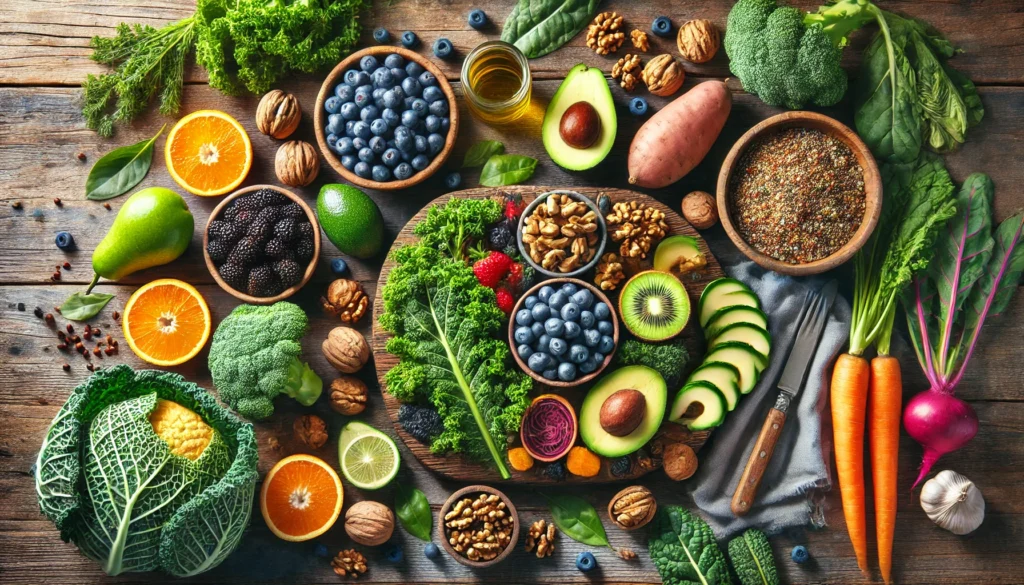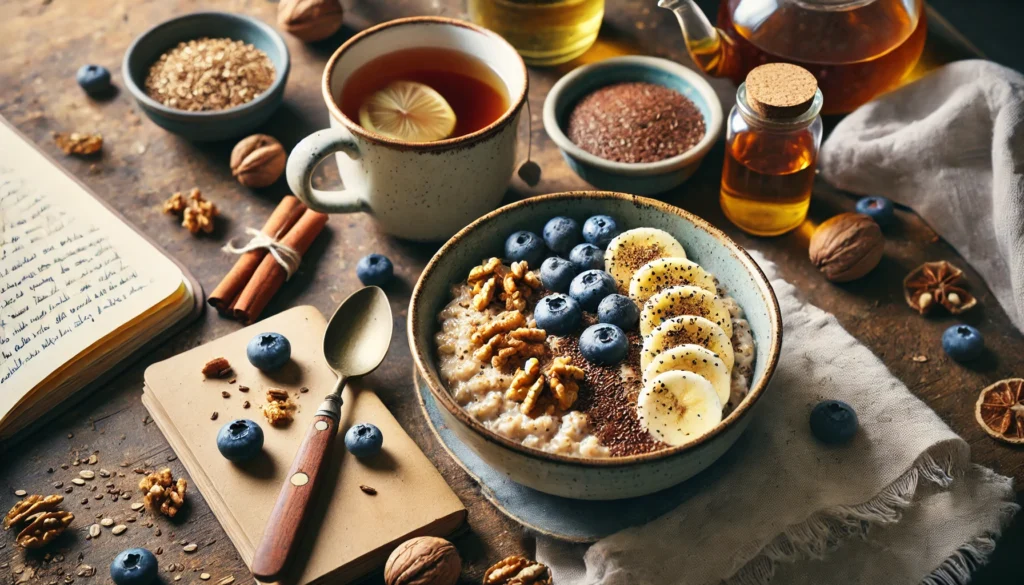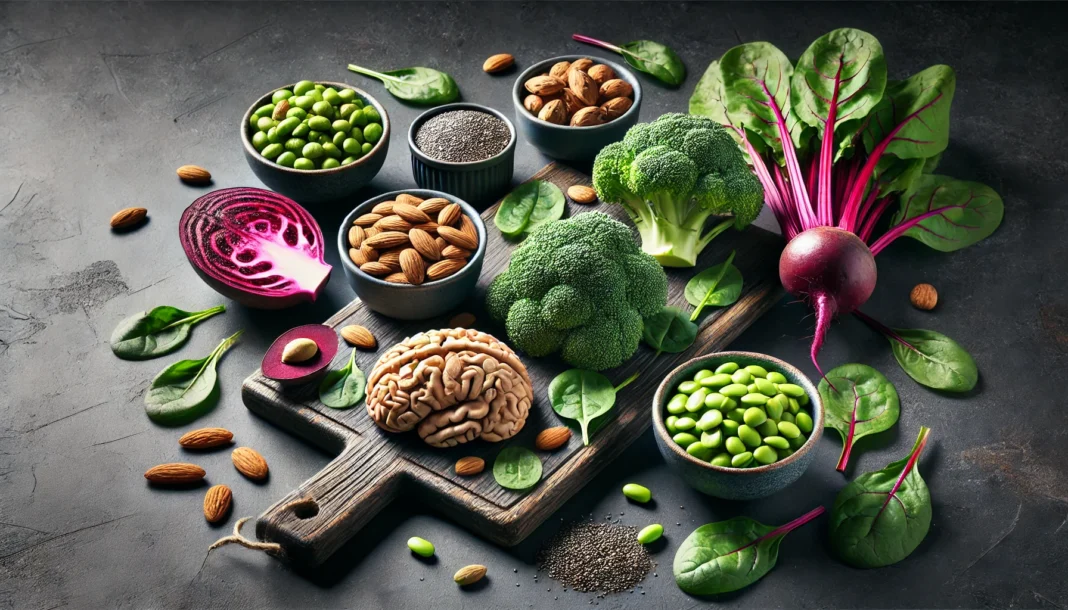In our fast-paced, hyper-connected world, maintaining optimal energy and mental clarity isn’t just a bonus—it’s a necessity. Whether you’re powering through back-to-back meetings, tackling a demanding academic schedule, or simply striving to feel your best each day, the foundation of peak performance starts with the fuel you provide your body. Nutrition plays a central role in this equation, especially when it comes to choosing the best foods for energy and concentration. Far from relying on caffeine jolts or sugary quick-fixes, true vitality stems from a balanced, nutrient-dense, whole-food diet that supports both physical stamina and cognitive resilience. Scientific research continues to illuminate how food interacts with our brain chemistry, hormonal balance, and cellular metabolism, revealing a powerful truth: enriching foods are one of the most effective tools we have for sustained energy and laser-sharp focus.
You may also like: Best Plant-Based Carbs for Energy and Health: What Science Says About Vegetarian Carbohydrates
Understanding the Connection Between Food and Cognitive Function
The relationship between nutrition and brain performance is intricate and deeply interconnected. Our brains, though only accounting for about 2% of our body weight, consume roughly 20% of our energy intake. This means that what we eat significantly affects how well our brains operate. Glucose, derived primarily from carbohydrates, serves as the brain’s main energy source. However, not all carbohydrates are created equal. Simple carbs from refined sugars may offer a temporary spike in alertness but lead to subsequent crashes in energy and mood. In contrast, complex carbohydrates found in whole grains, legumes, fruits, and vegetables provide a slow, steady release of glucose, promoting sustained cognitive function without the rollercoaster effects of sugar highs and lows.
In addition to carbohydrates, other macronutrients and micronutrients are instrumental in supporting mental acuity. Healthy fats, particularly omega-3 fatty acids, contribute to neuronal membrane fluidity and support neurotransmission, while proteins supply amino acids that serve as precursors for critical neurotransmitters like dopamine and serotonin. Meanwhile, vitamins and minerals such as B vitamins, magnesium, zinc, and iron play essential roles in neurotransmitter synthesis, energy metabolism, and oxygen transport. Understanding these nutritional underpinnings helps illuminate why the best foods for energy and concentration are not just about caloric intake—they are about quality, balance, and biological synergy.

Whole-Food Plant-Based Nutrition and Sustained Energy
Adopting a whole-food plant-based approach to eating offers multiple benefits, particularly when it comes to maintaining high energy levels and enhancing mental clarity. Whole foods, by definition, are minimally processed and rich in naturally occurring nutrients. They retain their fiber, water, and antioxidant content, which not only promote digestive health but also regulate the absorption of glucose into the bloodstream. This slower release of energy helps avoid the dramatic spikes and drops in blood sugar that can lead to feelings of fatigue, irritability, and impaired concentration.
Many enriching foods within a whole-food plant-based framework are packed with polyphenols, flavonoids, and phytonutrients—compounds that combat oxidative stress and reduce inflammation, both of which are known contributors to mental fog and low energy. Leafy greens like spinach and kale, for example, are rich in lutein and folate, nutrients linked to improved memory and cognitive processing. Similarly, berries, particularly blueberries, are potent sources of anthocyanins that have been shown to enhance neuronal signaling and delay cognitive aging. The fiber content in legumes and whole grains fosters a healthy gut microbiome, which emerging science connects with improved mood and cognition through the gut-brain axis.
Protein-Rich Plant Foods That Fuel Brain and Body
Protein is often associated with muscle growth and repair, but it also plays a crucial role in brain function. Amino acids, the building blocks of protein, are necessary for the production of neurotransmitters that regulate mood, alertness, and motivation. Plant-based protein sources such as lentils, chickpeas, quinoa, tofu, tempeh, edamame, and black beans provide ample amounts of these critical amino acids while also delivering fiber and beneficial plant compounds that animal proteins lack.
Including a variety of these foods in your daily diet helps ensure you’re getting a diverse amino acid profile, supporting mental clarity and physical stamina alike. Quinoa, for instance, is a complete protein, meaning it contains all nine essential amino acids, making it a standout among plant-based options. Edamame offers a balanced ratio of protein and healthy fat, while lentils deliver both protein and slow-digesting carbohydrates for lasting energy. These best foods for energy work in tandem to stabilize blood sugar, reduce inflammation, and keep the brain adequately nourished throughout the day.
Healthy Fats That Support Cognitive Performance
The human brain is nearly 60% fat, and certain dietary fats are indispensable for optimal brain function. Omega-3 fatty acids, particularly docosahexaenoic acid (DHA), are vital for maintaining the structural integrity of brain cells and promoting synaptic plasticity. While DHA is most concentrated in fatty fish, plant-based sources such as chia seeds, flaxseeds, walnuts, and hemp seeds provide alpha-linolenic acid (ALA), a precursor to DHA. While the conversion rate from ALA to DHA is modest, regularly consuming these foods can still contribute meaningfully to brain health, especially when paired with other enriching foods.
Avocados are another excellent source of monounsaturated fats that improve blood flow to the brain and reduce inflammation. Their high content of vitamin E, a powerful antioxidant, further protects neural tissue from oxidative damage. Incorporating moderate amounts of nut butters, olives, and cold-pressed oils like flaxseed or walnut oil can also help maintain a well-lubricated, high-functioning nervous system. When considering the best foods for energy and concentration, healthy fats play a dual role—providing long-lasting fuel and nurturing the neurological framework needed for peak mental performance.
Complex Carbohydrates for Lasting Vitality
Despite the popularity of low-carb diets, complex carbohydrates remain an essential component of a brain-healthy, energy-sustaining diet. Unlike simple sugars, complex carbs are digested more slowly, providing a gradual supply of glucose—the brain’s preferred fuel source. Whole grains such as oats, brown rice, farro, and barley are rich in B vitamins, which are necessary for energy metabolism and neural communication. These grains also contain magnesium, iron, and selenium, all of which contribute to reduced fatigue and enhanced cognitive resilience.
Sweet potatoes and other starchy vegetables offer similar benefits, coupling slow-digesting carbs with high levels of antioxidants, potassium, and fiber. The key is to prioritize whole-food sources over processed or refined products, which strip away fiber and nutrients, leading to erratic energy levels. When evaluating the best foods for energy and concentration, complex carbohydrates are often underestimated yet are among the most effective tools for sustained mental and physical endurance.
Micronutrients That Power Your Brain
Beyond macronutrients, the brain requires a steady influx of vitamins and minerals to function at its best. B-complex vitamins, including B6, B9 (folate), and B12, are deeply involved in the production of neurotransmitters and the maintenance of brain tissue. Although B12 is not naturally found in plant foods, fortified cereals, nutritional yeast, and supplements can help meet dietary needs. Iron is essential for oxygen transport and energy production, and plant-based sources such as lentils, pumpkin seeds, and tofu offer bioavailable iron when paired with vitamin C-rich foods that enhance absorption.
Zinc, selenium, and magnesium also contribute to a well-regulated nervous system. Magnesium, in particular, supports synaptic plasticity and has been linked to improvements in learning and memory. Leafy greens, seeds, legumes, and whole grains are excellent sources of these minerals. Integrating a variety of micronutrient-rich whole plant foods into your routine ensures that your brain remains well-equipped to process information, stay focused, and resist fatigue—factors that define the best foods for energy and concentration.

Frequently Asked Questions: Best Foods for Energy and Concentration
1. Can eating the same healthy foods every day still support long-term mental performance?
While eating a consistent, healthy diet can promote stability in energy and focus, long-term cognitive performance benefits from dietary variety. Relying on a narrow group of the best foods for energy may lead to nutrient gaps over time, especially if certain vitamins, minerals, or phytonutrients are underrepresented. A diverse intake of enriching foods exposes the body to a broader spectrum of antioxidants and compounds that support neuroplasticity and cellular repair. For instance, rotating between different leafy greens, berries, legumes, and whole grains ensures varied nutrient exposure that may optimize neurotransmitter balance. Exploring seasonal and cultural variations of plant-based foods can refresh the palate and stimulate brain engagement through novelty.
2. How do enriching foods affect mood regulation in addition to energy and focus?
Emerging evidence suggests that enriching foods play a vital role not only in sustaining energy but also in regulating emotional resilience. Nutrients such as magnesium, zinc, and tryptophan support the synthesis of serotonin, a neurotransmitter closely tied to mood balance. Many of the best foods for energy and concentration—like oats, pumpkin seeds, and bananas—contribute indirectly to emotional stability through their influence on gut health and hormonal regulation. Additionally, polyphenol-rich foods such as dark berries and cocoa have been associated with reductions in stress markers. In this way, a brain-fueling diet doubles as a mood-boosting strategy, offering a compelling argument for prioritizing nutrient density in daily meals.
3. Is there an ideal time of day to eat foods that boost concentration and alertness?
Timing can significantly influence the effectiveness of the best foods for energy and concentration. Consuming complex carbohydrates and plant-based proteins earlier in the day may help maintain steady glucose levels and mental sharpness through midday. A balanced breakfast that includes enriching foods like whole oats, berries, and nuts can set the tone for sustained cognitive engagement. Conversely, meals that are high in refined sugars or low in fiber can result in post-meal fatigue and impaired decision-making. Some professionals find that small, nutrient-dense snacks between meals—such as apple slices with almond butter or a handful of roasted chickpeas—can help maintain attention during demanding periods.
4. Are there plant-based strategies to combat the afternoon energy slump?
The common afternoon dip in energy and focus is often due to blood sugar fluctuations, dehydration, or inadequate nutrient intake at breakfast or lunch. One effective strategy is to incorporate the best foods for energy and concentration that are high in fiber, such as lentils, quinoa, and flaxseeds, into your midday meal. These foods slow digestion and provide a steady stream of glucose, which can prevent the dramatic crash that often follows refined carb-heavy lunches. Enriching foods like citrus fruits or matcha can offer gentle stimulation without the crash associated with caffeine. Staying hydrated and avoiding high-fat, heavy meals during the day can also help maintain clarity and motivation into the late afternoon.
5. What role does hydration play in energy and cognitive performance?
Although not a food per se, hydration is a foundational aspect of energy and cognitive function that often gets overlooked. Even mild dehydration can impair concentration, memory, and alertness. Many of the best foods for energy—such as cucumbers, oranges, and melons—are naturally hydrating, providing water along with essential electrolytes. Pairing these hydrating, enriching foods with regular water intake can support optimal brain function and prevent the sluggishness that dehydration may cause. For those who struggle to drink enough water, infusing it with herbs, citrus, or berries can enhance palatability and encourage consistent intake throughout the day.
6. Do enriching foods benefit long-term brain health or just short-term focus?
The benefits of enriching foods extend well beyond immediate boosts in concentration or energy. Diets rich in polyphenols, healthy fats, and micronutrients have been linked to lower rates of cognitive decline and neurodegenerative disease over time. Many of the best foods for energy and concentration, such as walnuts, dark leafy greens, and fermented vegetables, are also neuroprotective. They help reduce chronic inflammation, support the production of brain-derived neurotrophic factor (BDNF), and improve vascular health in the brain. Incorporating these foods consistently is a strategic investment in long-term cognitive resilience and mental clarity into older age.
7. How do social habits and food culture impact energy-supportive eating patterns?
Social settings and cultural practices often shape what and how we eat, which can influence our access to the best foods for energy and concentration. For example, cultures with traditions centered around plant-forward meals, such as the Mediterranean or Okinawan diets, naturally emphasize enriching foods that support brain and metabolic health. In contrast, highly processed and fast-paced food environments may challenge consistency. To navigate this, individuals can adapt cultural favorites using whole ingredients—like swapping white rice for quinoa or including legumes in traditional dishes. Sharing meals and cooking with others can also reinforce healthy routines and foster a positive relationship with brain-fueling foods.
8. Are there any new trends or innovations in brain-boosting plant-based nutrition?
The field of nutritional neuroscience is constantly evolving, and new innovations in plant-based brain nutrition are emerging. Adaptogenic herbs like ashwagandha and rhodiola are gaining attention for their role in reducing stress and enhancing mental stamina, and they can be paired with enriching foods for synergistic effects. Fermented superfoods, such as beet kvass and fermented turmeric drinks, are being explored for their gut-brain axis benefits. Additionally, plant-based nootropic blends that combine mushrooms, green tea extract, and B vitamins are appearing in functional beverages and snacks. These developments represent a new frontier in optimizing cognitive health beyond traditional approaches with the best foods for energy.
9. Can enriching foods support energy levels for people with chronic fatigue or burnout?
While no single food can cure chronic fatigue or burnout, a consistent intake of enriching foods can support recovery and resilience. Nutritional strategies often include anti-inflammatory ingredients like turmeric, leafy greens, and chia seeds that modulate cortisol levels and support mitochondrial health. Many of the best foods for energy—such as sweet potatoes, black beans, and almonds—offer a steady release of nutrients without placing a heavy metabolic burden on the body. People experiencing fatigue may also benefit from B-vitamin-rich foods and adequate iron to address subclinical deficiencies. Working with a registered dietitian can help tailor a plant-forward approach that supports both symptom relief and systemic healing.
10. How can busy professionals incorporate the best foods for energy into hectic schedules?
Time constraints can challenge even the most health-conscious individuals, but incorporating enriching foods doesn’t require elaborate meal prep. Keeping ready-to-eat staples like hummus, roasted nuts, pre-washed greens, and frozen berries on hand allows for nutrient-rich meals in minutes. Smoothies with plant-based protein, chia seeds, and fruit can serve as quick, brain-boosting breakfasts or snacks. The key is to plan simple combinations that include the best foods for energy and concentration—like whole grains with legumes or fresh vegetables with avocado. Portable options, such as energy bites made from dates and oats, ensure mental fuel is always within reach, even on the busiest days.

Enriching Foods That Balance the Gut-Brain Axis
The emerging field of nutritional psychiatry has brought increased attention to the role of the gut-brain axis in cognitive health. The gut houses trillions of microbes that influence not only digestion but also mood, cognition, and immune function. A diverse and well-balanced microbiome can positively affect neurotransmitter production, reduce systemic inflammation, and strengthen the gut lining, all of which are important for brain health. Enriching foods that support this ecosystem include fermented foods like kimchi, sauerkraut, and tempeh, along with high-fiber foods that feed beneficial bacteria.
Prebiotic-rich vegetables such as garlic, onions, leeks, and asparagus act as food for probiotics, enhancing the microbial diversity necessary for optimal brain function. Bananas, apples, and oats also offer prebiotic fibers that nourish the gut. Together, these foods promote the production of short-chain fatty acids (SCFAs), which cross the blood-brain barrier and exert anti-inflammatory and neuroprotective effects. This dynamic interplay between diet, the gut microbiome, and the brain reveals another compelling reason why whole plant foods are among the best foods for energy and concentration.
Further Reading:
Best Foods for A Healthy Brain and Improved Memory
Foods linked to better brainpower
12 foods to boost brain function
brain health, natural energy boosters, focus-enhancing foods, plant-based nutrition, healthy brain function, cognitive performance, mental clarity diet, nutrient-dense meals, brain fuel, whole food energy, productivity foods, anti-fatigue diet, energy-boosting snacks, plant-based brain foods, smart eating habits, healthy lifestyle choices, balanced energy levels, mood-supportive nutrition, foods that fight brain fog, mental performance support
The information contained in this article is provided for general informational purposes only and is not intended to serve as medical, legal, or professional advice. While NewsHealthWatch strives to present accurate, up-to-date, and reliable content, no warranty or guarantee, expressed or implied, is made regarding the completeness, accuracy, or adequacy of the information provided. Readers are strongly advised to seek the guidance of a qualified healthcare provider or other relevant professionals before acting on any information contained in this article. NewsHealthWatch, its authors, editors, and contributors expressly disclaim any liability for any damages, losses, or consequences arising directly or indirectly from the use, interpretation, or reliance on any information presented herein. The views and opinions expressed in this article are those of the author(s) and do not necessarily reflect the official policies or positions of NewsHealthWatch.

